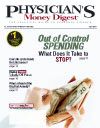Publication
Article
Physician's Money Digest
Kidney Swap Eases Organ Shortage
What if your kidney was incompatible with your spouse who was suffering from kidney failure, but a relative of a patient in a different hospital was a compatible match and in need of your kidney for their loved one? Kidney swaps like this are called paired exchanges, and according to US News & World Report, this organtrade is a growing trend. Instead of waiting for years on the United Network for Organ Sharing (UNOS) list for a compatible kidney—a list currently consisting of almost 68,000 people—someone with kidney failure and a willing but incompatible donor can request that a hospital find them a corresponding pair, and then mix and match. Since Rhode Island performed the first swap in the year 2000, over 100 others have been done. And while they have only used kidneys for these organ swaps, South Korea has been performing liver swaps. If this method continues to grow and the number of participants increases, so will the chance someone can find a match. The UNOS has proposed a national swap system, but as with anything, there are hurdles holding up such a system. According to the article, kidney exchanges may violate a federal law against selling body parts. Once Congress clarifies the law, UNOS hopes to move ahead with their plan.
